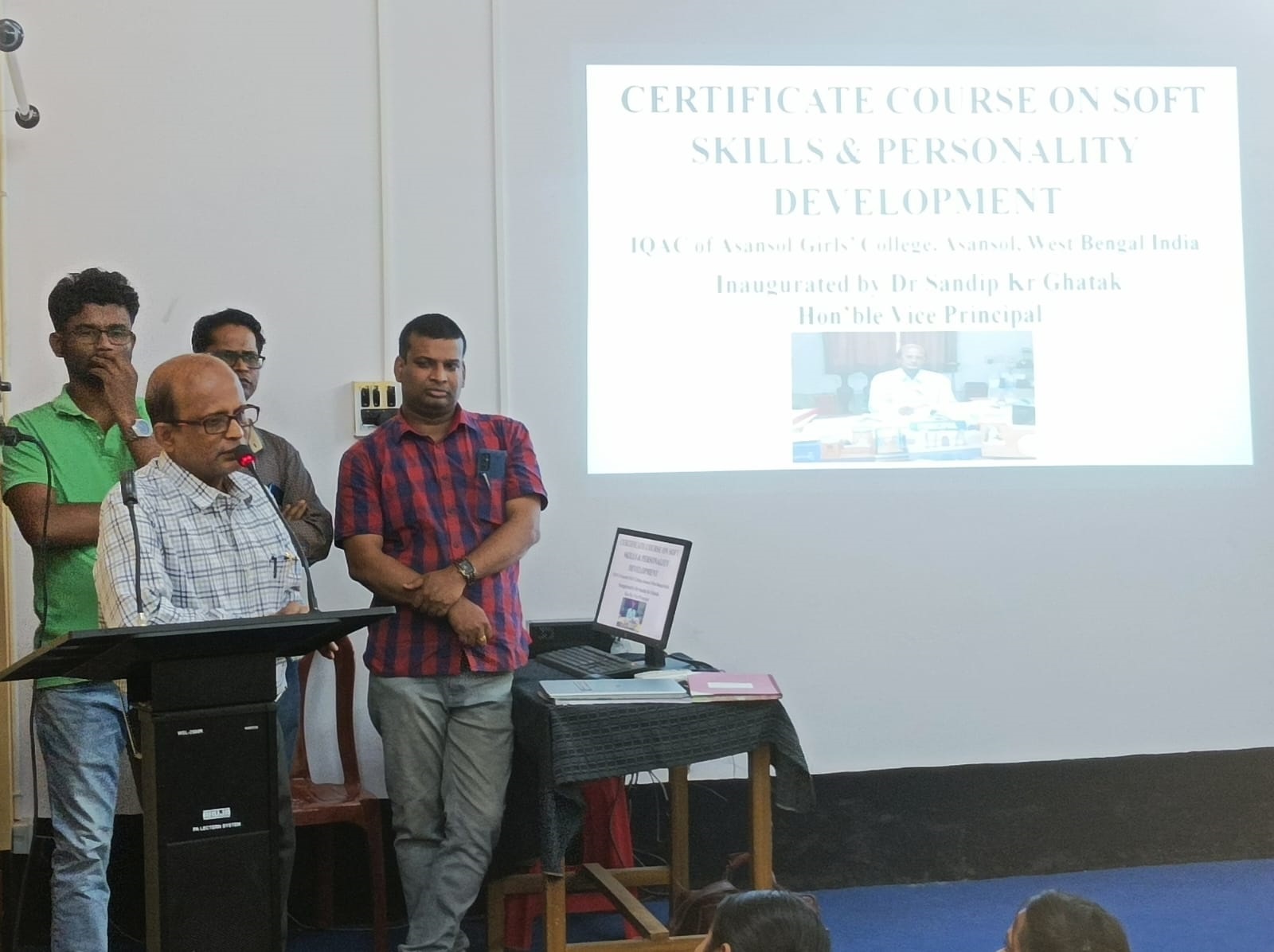Duration: 3 hours (3T + 0L)
Duration: 5 hours (3T + 2L)
Duration: 6 hours (3T + 3L)
Duration: 2 hours (2T + 0L)
Duration: 8 hours (4T + 4L)
Duration: 6 hours
Certificate course
Offline
TBA
Asansol Girls’ College, Asansol, West Bengal, India.
Department of Nutrition, Asansol Girls’ College, Asansol.
4 Months (16 weeks)
UG and PG level of students from nutrition science background.
Basic knowledge on Nutrition science is required. Minimum Nutrition (Hons). Pursuing (3rd yr. onwards), graduate and Post- graduate in Nutrition science students are eligible.
11:00 a.m. to 1:00 p.m.
Regular assignment and final written exam.
| Paper | Module | Marks |
|---|---|---|
| Paper 1 | Module 1 | 10+40 |
| Module 2 | 10+40 | |
| Paper 2 | Module 3 | 10+15 |
| Module 4 | 10+15 |
Prof. Kamalika Chatterjee is a State Aided College Teacher II having M.Sc Degree in Nutrition and Dietetics with 14 years of academic and 3 years of Clinical Dietetian experience. She is regularly engaged in presenting paper, Community research work and related paper publication.
Prof. Pallavi Majumder is an Assistant Professor having M.Sc Degree & PG Diploma in Dietetics with more than 6years of academic and 3years of industrial experience in related fields. She is regularly engaged in presenting paper, Community research work and related paper publications. Life Member of Indian Dietetic Association.
Prof. Arnab Chatterjee is an Assistant Professor of Dept. of Nutrition, Asansol Girls’ College. He has published Scientific paper in various peer reviewed Journal and regularly delivers talk at different reputed institutions. He is also a Life member of Nutrition Society of India and Indian Dietetic Association.
All the faculty members are equipped with up to date knowledge, dedication, and experience. Course faculties will guide the student of the course in right direction for fruitful outcome with a comprehensive and practical education in the concerned field.
Course Type: Course on Field Work and Dissertation Writing
Certificate Issuing Authority: Asansol Girls’ College
Course Organizer: Department of Sociology, Asansol Girls’ College, Asansol Under the Aegis of IQAC, Asansol Girls’ College, Paschim Burdwan, Asansol
Target Audience: UG/PG Level Sociology and allied subjects
Pre-Requisites: Basic Knowledge on Research Methodology
Duration: 12 Weeks (Approx. 3 Classes per Week, Each of 1 Hour Duration) Course
Course Exams: Regular Weekly Assignments & Final Exam at the end of the Course
Course Instructor: Dr. Pankaj Kumar, Megha Bagdas and Piyali Sarkar, Department of Sociology, Asansol Girls’ College, Paschim Burdwan, Asansol.
Field work and dissertation writing is an essential activity for sociology and social science students. Field based research is one of major activities for social science students. Writing and publication of research findings is an integral part of research. Therefore, it is necessary for a students / researcher to learn and apply principles and techniques of report writing for effective dissemination of the academic and research findings. This course intends to introduce the learner to the principles, techniques and tools of academic and research report writing. After successful completion of this course the learner will be able to write reports on various academic activities including research effectively and efficiently.
The cultivation technology of the following types of mushroom will be covered during the training course with emphasis on practical:
In this certificate course, you will not only learn mushroom cultivation and spawn cultivation, but also get access to a buy-back facility offer, where we buyback mushroom from the course student and promote their business. This course is beginner-friendly, hence anyone without any farming background can start cultivating mushrooms.
What skills and knowledge this course will impart:
Regular monthly assignments and final examination at the end of the course.
Course Type: Certificate Course
Certificate Issuing Authority: Asansol Girls’ College, Asansol, West Bengal, India
Course Organizer: Department of Nutrition, Asansol Girls’ College, Asansol Under the Aegis of IQAC, Asansol Girls’ College, Asansol
